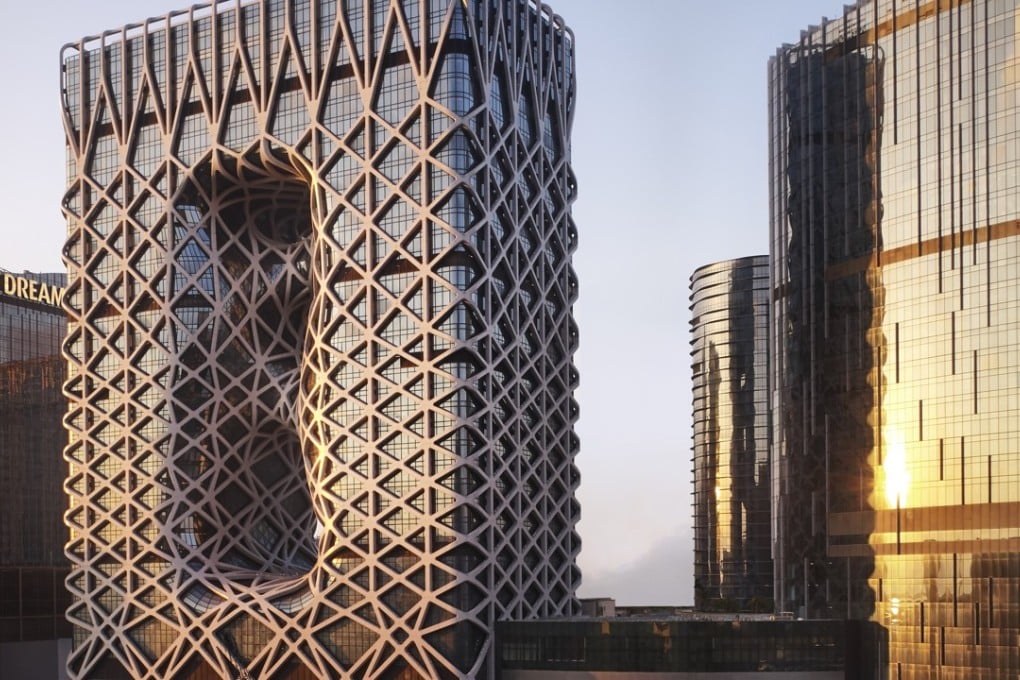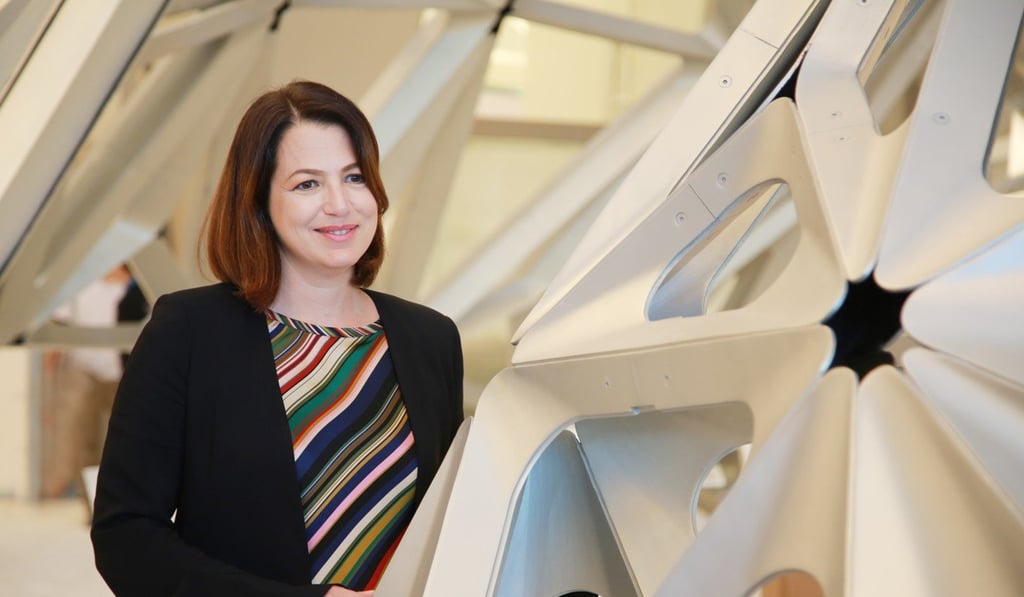How the Zaha Hadid-designed Morpheus hotel in Macau found solutions to an unusual set of challenges
The Morpheus hotel’s futuristic-looking design – which boasts the world’s first free-form exoskeleton – has carved out its own distinctive visual identity, while accommodating 780 ultra-luxurious hotel rooms and a VIP casino

Is Morpheus, the late Dame Zaha Hadid’s only building in Macau, an example of the “weird” architecture that Chinese President Xi Jinping railed against in 2016?
The monolithic 40-storey structure, wrapped in a gleaming aluminium exoskeleton, shares the appearance of the grandiose architecture that so irked the Chinese leader.
Yet closer examination reveals the hotel’s futuristic-looking design – which boasts a world-first, free-form exoskeleton – is a groundbreaking solution to an unusual set of challenges.
First, the site offered a relatively tight 6,850 square metre (74,000 square foot) rectangular building footprint, the last parcel of land to be developed within the City of Dreams entertainment complex on the Cotai Strip. Owned and developed by Melco Resorts & Entertainment, the urban resort comprises four other hotels, and a variety of luxury retail, entertainment venues and casinos.
The design is also a response to an existing condition. According to the Morpheus project architect and Zaha Hadid Architects (ZHA) associate director Viviana Muscettola, the new superstructure had to be adjusted to fit a site already with foundations, which had been intended for serviced apartments, designed by a different architectural firm.

Then there was the unexpected death in 2016 of Hadid, the Pritzker Prize-winning architect, two years before the completion of the Morpheus. It was one of 36 projects in 23 countries the company was working on when she died of a heart attack. The practice, now led by partner Patrik Schumacher, is behind several other Asian projects to be completed this year, including the Changsha Meixihu International Cultural Centre, the Nanjing Culture and Conference Centre/Jumeirah Hotel, and Leeza Soho, a skyscraper in Beijing with a tall, twisting atrium.
